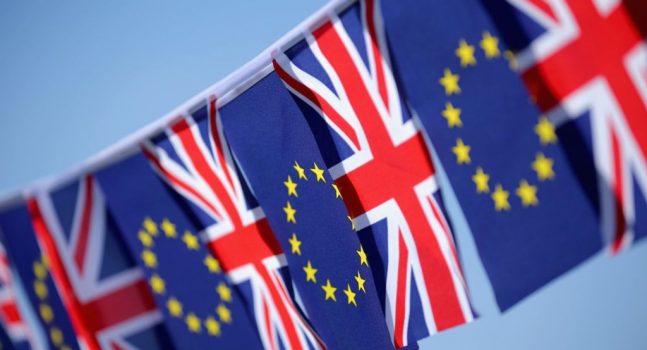European Associate Citizenship
February 14, 2017 by Charles Goerens
Written contribution by MEP Charles Goerens
What is the purpose / aim of your amendment?
I tabled my amendment to the own-initiative draft report by Guy Verhofstadt entitled “Possible evolutions of and adjustments to the current institutional set-up of the European Union”, which aims at looking at the possibilities to improve the functioning of the European Union by a change of the Treaties.
I have to acknowledge that these proposals are set-down in a so-called “own-initiative” report, and thus carry no legal weight at this stage. However, with the Brexit negotiations coming to a term, and given that the withdrawal of the United Kingdom, as one of the larger Member States, and as the largest non-euro-area member, affects the strength and the institutional balance of the Union, the European Union will have to revise its Treaties. This is where Mr. Verhofstadt’s report could serve as a basis for the revision.
In fact, in his report, Mr. Verhofstadt raises the idea of a type of “associate status”, which could be proposed “to those states in the periphery that only want to participate on the sideline, i.e. in some specific Union policies”, underlining that “this status should be accompanied by obligations corresponding to the associated rights”. This new type of “associate status” could thus be one of the possible outcomes of the negotiations about the future relationship between the EU and the UK. My proposed amendment could hence go hand in hand with Mr. Verhofstadt’s proposal and could be seen as a solution satisfying all UK citizens who wish to maintain a close relationship with the EU, whether they live in or outside the UK territory.
I am deeply convinced that we should not ignore the concern felt by many of those who continue to identify themselves with the European values and wish to be part of the European project even after their country has ceased to be a member of the European Union. In fact, the numerous reactions and the support that I got so far from UK citizens living in the UK and abroad, confirm that I was right to table this amendment. Up to now, more than 1200 emails, each one telling a very personal story about the person’s or families’ feeling after the referendum, reached my office. As a member of the European Parliament, I could not simply fail to comply with my political convictions and I felt it as my duty to become active when one of the greatest achievements of the European Union, namely the freedom of movement, is at stake.
Isn’t it unfair that there will/might be no reciprocity regarding the amendment for EU citizens in the UK?
Of course, some might argue that the “associate EU citizenship” would grant UK citizens a privilege that EU citizens, who might have to quit their jobs in the UK, do not enjoy. Yet, we have considered this issue and therefore propose that the associate citizens pay an annual membership fee directly into the EU budget as an own resource of the Union, following the reciprocal principle of ‘no taxation without representation’.
As far as the reproach of lack of reciprocity is concerned, let me underline this: As a member of the European Parliament, I am not in a position to tell the UK government what to do. Yet, the amendment, as I mentioned before, could serve as a basis for the negotiations about the future relationship between the EU and the UK. In that sense, it can be seen as a political incentive where both parties are asked to find a way for future collaboration, which is also in the best interest of their respective citizens.
In the press release it says that “associate citizens should pay an annual membership fee directly into the EU budget”. What will be the amount for this? How would this work?
I am rather reluctant to dive into precisions relating to this particular issue, which I consider a minor detail, compared to the benefits that both, the EU and the so-called “associate EU citizens” would get out of it. An appropriate amount is going to be defined as soon as the principle is going to be adopted and translated into primary law.
What lead you to the withdrawal of the amendment? What is the future path of the Associate EU citizenship?
I decided together with Guy Verhofstadt to withdraw my amendment on Associate EU Citizenship. We realised that this has become a very important issue that cannot await treaty change – as was my intention when I first tabled my amendment – since this might take years.
In the evening of 7 December, the House of Commons decided by a majority of almost 400 to support Theresa May’s plan to trigger article 50 by the end of March 2017. Hence the prospect that Article 50 will be invoked has become very real indeed.
The European Parliament will define its position on the Brexit agreement through a resolution during spring 2017. This seems to be the best opportunity to give Brexit negotiator Guy Verhofstadt the possibility to enforce the Associate EU Citizenship.
I agree with Guy Verhofstadt that the abovementioned procedure makes it much more likely for the Associate EU Citizenship to succeed than through an amendment.
I often hear arguments, as to the legal impossibility to implement the proposal. However, it is important to differentiate between the current state of EU legislation in terms of citizenship and the concept, which I proposed in my amendment 882.
Currently the Treaties do not allow to grant associate EU citizenship to UK citizens after their country has left the EU. In fact, European citizenship stems directly from the national citizenship of its Member States. However, they also specify that citizenship of the Union is additional to and does not replace national citizenship. Creating an individual citizenship to the Union would thus require treaty change, not in the least to specify its rights and duties, but it would not infringe upon national citizenship.
General remarks
There is a lack of union in Europe.
In this sense, we must recognise that if support is denied to British citizens to keep their European citizenship, we are going to weaken the logic that most efficiently advances the European Union as a whole.
We are a Union of States but above all, we are a Union of citizens. Recent Eurostat statistics demonstrate that citizens want more unity and not less of it. If we want to revive the European Union during and after Brexit, we need to strengthen the citizens and their rights as opposed to weaken them.
Associate citizenship means that the United Kingdom does indeed leave, but that its citizens will be able to keep close ties with the European Union. It is a true win-win situation and in line with the essence not only of the European Union, but also of real unity beyond nationality, gender, race or age.
My proposal was first of all a political impulse to push the boundaries, on different levels.
Many colleagues – amongst others colleagues from the UK – have expressed their explicit support of my amendment. Thus I hope that the same is going to be true when it comes to incorporating the proposal into the European Parliament’s resolution.
When it comes to the negotiations on the future relationship between the EU and the UK, my idea, presumably in a different wording, could indeed serve as a means to convince the UK government to accept freedom of movement of people along with the other three freedoms, which the European Single Market seeks to guarantee.
Political determination will be of utmost importance and I will definitely not content myself by truckling to those who consider my proposal unfeasible. I am determined to bring this idea as far as I possibly can on the European level. Indeed, history proves me right when we look at the achievements, which European citizens enjoy nowadays. Who thought, for instance, that one day, EU citizenship would give every EU citizen the right to vote for and stand as a candidate in municipal and European Parliament elections in whichever EU country the citizen resides, under the same conditions as nationals. This is reality today and yes, it needed a tremendous effort and, above all, the political determination to get this far. Why not exert ourselves for this cause and make the “associate EU citizenship” happen?
“There is a lack of Europe in the European Union and a lack of union in the European Union. That has to change, and we have to change that right now and work together.” President Juncker said back in 2015.
In the same sense, we must recognise that if support is denied to British citizens in the future to keep their European citizenship, we are going to weaken the logic that most efficiently advances the European Union as a whole.
We are a Union of States but above all, we are a Union of citizens. Recent Eurostat statistics demonstrate that citizens want more unity and not less of it. If we want to revive the European Union during and after Brexit, we need to strengthen the citizens and their rights as opposed to weaken them.
Associate citizenship means that the United Kingdom does leave, but that its citizens will be able to keep close ties with the European Union. It is a true win-win situation and in line with the essence not only of the European Union, but also of real unity beyond nationality, gender, race or age.
Photo (c) Getty



Leave a Reply